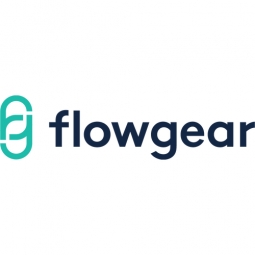Download PDF
Ungerboeck Enhances Event Booking and Venue Management Tools with Flowgear Integration
Technology Category
- Application Infrastructure & Middleware - Data Exchange & Integration
- Application Infrastructure & Middleware - Middleware, SDKs & Libraries
Applicable Industries
- Cement
- Equipment & Machinery
Applicable Functions
- Product Research & Development
Use Cases
- Inventory Management
Services
- Cloud Planning, Design & Implementation Services
- System Integration
The Challenge
Ungerboeck.com, a Software-as-a-Service (SaaS) vendor specializing in online booking and venue management for over 900 venues, faced a significant business challenge. The company needed to integrate its third-generation online booking and venue management product with multiple external systems. This integration required addressing three technical challenges. Firstly, the integrations needed to be built by a specialized team outside of their core development team. Secondly, it was crucial to ensure that the amount of custom code was kept to a minimum. Lastly, the company needed to select an integration solution that didn’t require a significant infrastructure investment. CTO Rob Scott embarked on a research journey to find the most suitable integration options.
About The Customer
Ungerboeck.com is a Software-as-a-Service (SaaS) vendor specializing in online booking and venue management. The company provides services to over 900 venues, offering a third-generation online booking and venue management product. The company faced the challenge of integrating this product with multiple external systems, requiring a solution that could be implemented by a specialized team, minimize custom code, and avoid significant infrastructure investment. Ungerboeck.com's CTO, Rob Scott, led the search for an appropriate integration solution, ultimately selecting Flowgear for its developer-friendly and budget-friendly attributes.
The Solution
After evaluating ten solution vendors over several months, Ungerboeck.com chose Flowgear, an agile cloud integration platform, to pilot the integration project. Flowgear met the criteria of being developer-friendly and budget-friendly. As the pilot progressed, Flowgear provided other connectors that Ungerboeck.com needed, such as Amazon’s S3 storage service and Simple Queue Service (SQS). The integration team started with a proof-of-concept to get comfortable with the integration solution. With Flowgear’s customer support, they were able to resolve questions and issues quickly, and so the solution was extended. The integration workflows now in production include integrations on behalf of clients, integrations of internal applications via the company’s own API, and integrations that provide message queuing via Amazon SQS.
Operational Impact
Related Case Studies.

Case Study
Smart Water Filtration Systems
Before working with Ayla Networks, Ozner was already using cloud connectivity to identify and solve water-filtration system malfunctions as well as to monitor filter cartridges for replacements.But, in June 2015, Ozner executives talked with Ayla about how the company might further improve its water systems with IoT technology. They liked what they heard from Ayla, but the executives needed to be sure that Ayla’s Agile IoT Platform provided the security and reliability Ozner required.

Case Study
IoT enabled Fleet Management with MindSphere
In view of growing competition, Gämmerler had a strong need to remain competitive via process optimization, reliability and gentle handling of printed products, even at highest press speeds. In addition, a digitalization initiative also included developing a key differentiation via data-driven services offers.

Case Study
Predictive Maintenance for Industrial Chillers
For global leaders in the industrial chiller manufacturing, reliability of the entire production process is of the utmost importance. Chillers are refrigeration systems that produce ice water to provide cooling for a process or industrial application. One of those leaders sought a way to respond to asset performance issues, even before they occur. The intelligence to guarantee maximum reliability of cooling devices is embedded (pre-alarming). A pre-alarming phase means that the cooling device still works, but symptoms may appear, telling manufacturers that a failure is likely to occur in the near future. Chillers who are not internet connected at that moment, provide little insight in this pre-alarming phase.

Case Study
Premium Appliance Producer Innovates with Internet of Everything
Sub-Zero faced the largest product launch in the company’s history:It wanted to launch 60 new products as scheduled while simultaneously opening a new “greenfield” production facility, yet still adhering to stringent quality requirements and manage issues from new supply-chain partners. A the same time, it wanted to increase staff productivity time and collaboration while reducing travel and costs.

Case Study
System 800xA at Indian Cement Plants
Chettinad Cement recognized that further efficiencies could be achieved in its cement manufacturing process. It looked to investing in comprehensive operational and control technologies to manage and derive productivity and energy efficiency gains from the assets on Line 2, their second plant in India.

Case Study
Integration of PLC with IoT for Bosch Rexroth
The application arises from the need to monitor and anticipate the problems of one or more machines managed by a PLC. These problems, often resulting from the accumulation over time of small discrepancies, require, when they occur, ex post technical operations maintenance.





